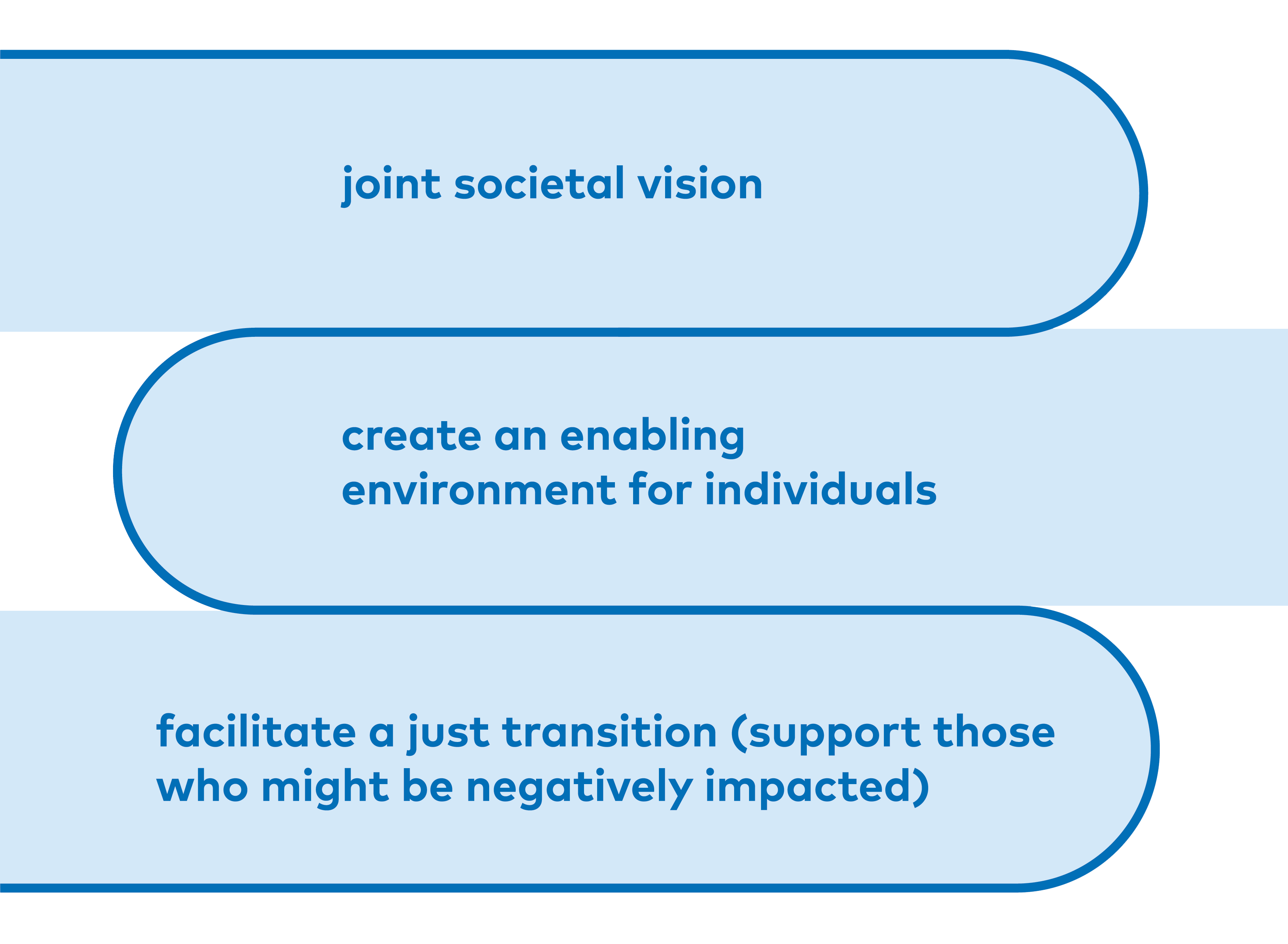Balancing economic incentives and regulations
According to research, consumers tend to respond better to positive incentives, such as subsidies, than negative incentives like taxes, when it comes to promoting sustainable food choice
Lindahl, Therese (2023) What determines acceptability of taxes and subsidies for more sustainable food consumption – role of design and presentation? Presentation at Nordic Food Environment Workshop 29th of March 2023 in Stockholm. The Beijer Institute of Ecological Economics, Royal Swedish Academy of Sciences.
Taxes: Many countries have implemented taxes on alcohol, tobacco, sugar, and saturated fat. Studies indicate that taxes can effectively decrease the consumption of taxed foods. However, the magnitude of the reduction in consumption may depend on the level of the tax, and a significant tax rate may be necessary to achieve substantial changes in behavior.
Subsidies: Subsidies for locally grown produce, plant-based protein sources, or sustainable agricultural practices can encourage producers to adopt these practices and make such products more affordable for consumers
Critchley, J., & Unwin, N. (2010). The Role of Public Policy. In The Evidence Base for Diabetes Care: Second Edition (pp. 471-488). https://doi.org/10.1002/9780470682807.ch28
Regulations and requirements: Governments could regulate the availability of unhealthy food products and those with high environmental impact. Concrete examples include reducing the accessibility of unhealthy food products (smaller packaging size) and regulating marketing (how and where certain food products are displayed in shops). Regulating marketing is particularly effective in steering behaviour change among children.
Increasing sustainability requirements in the retail sector has a significant potential to influence consumer behavior. By addressing issues such as reducing carbon emissions in the food supply chain, and creating more equitable pricing structures, commercial actors can promote sustainable food consumption while remaining profitable. Regulating commercial practices could play an important role in driving health and equity
Gilmore et al., 2023. Commercial Determinants of Health 1 Defining and conceptualising the commercial determinants of health.
Röös, E., Larsson, J., Resare Sahlin, K., Jonell, M., Lindahl, T., André,E., Säll, S., Harring, N., Persson, M. (2021) Policy Options for Sustainable Food Consumption – Review and Recommendations for Sweden Mistra Sustainable Consumption report 1:10
Public procurement: The public sector can play a significant role in promoting sustainable food consumption and influencing the market through demonstrating the public sector's commitment to sustainability. For instance, the sustainability in public kitchens could be promoted by introducing environmental or health requirements
Swensson LFJ, Hunter D, Schneider S, Tartanac F. Introduction. In: Public food procurement for sustainable food systems and healthy diets. Rome: FAO, Alliance of Bioversity International and CIAT–Porto Alegre: Editora da UFRGS, 2021.
STEPS TO FOSTER CHANGE:

Figure 2: Three steps to foster societal change
Steps to foster change
We recommend three critical steps to promote acceptance of healthy and sustainable food consumption (see figure 2).
- Establish a shared vision for healthy and sustainable food consumption, led by the public sector with an inclusive approach that involves all relevant actors in the food chain, including consumers.
- Creating an enabling environment for individuals, including policy incentives and measures to promote behaviour change. This can include economic incentives, marketing, national regulations, and other measures to encourage healthy and sustainable food choices.
- Ensuring a just transition, whereby individuals or sectors that may be adversely affected by a shift towards a more plant-based society are supported. For instance, this could involve transforming intensive animal farming to a different scale with a new business model that incorporates alternative sources of plant proteins.